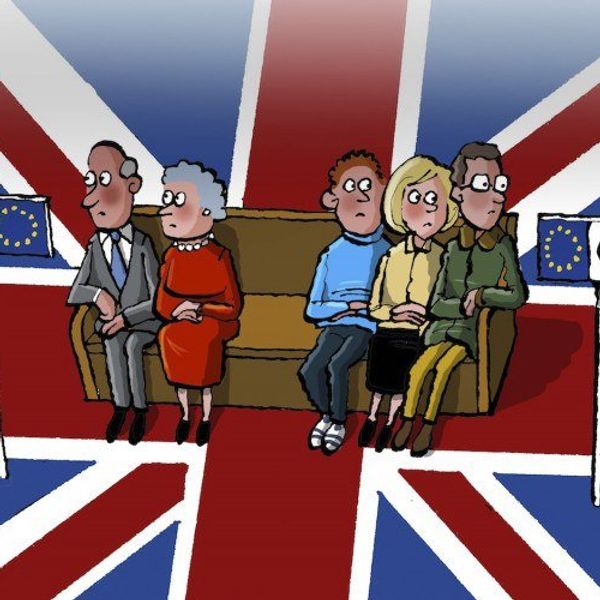Due to take place on June 23, the British referendum on its membership in the European Union has garnered plenty of well-earned international attention. As the supranational organization continues to deal with large flows of refugees and migrants and certain economic woes and divides on foreign policy, this vote could be a strong indicator for the future policies of the EU. As such a potentially important event approaches, political leaders from a multitude of countries and organizations outside the United Kingdom have been weighing in on the debate, from Barack Obama to Angela Merkel to Donald Tusk. Even Donald Trump has repeatedly given his opinions on the issue, taking a position as far from Obama's as possible.
However, as these opinions are added to the debate, the majority in support of continued British membership, many voices, particularly from the Leave campaign, have attacked what they see as unnecessary foreign intervention. Nigel Farage, leader of the UK Independence Party, has even gone so far as to label Barack Obama as “the most anti-British American president there has ever been.” Now assuming that the vast majority of people don't take as ridiculous a viewpoint as Farage, but are skeptical of the international pressure, the question becomes: What interest does the international community have in this vote, and how genuine are the warnings leveled by global leaders?
Almost every international perspective on the upcoming referendum has been preceded by a statement of "Obviously, this decision is up to the UK voters themselves, but..." a concession to appear less actively interventionist in the domestic decision. And yet, these same leaders still feel it necessary to weigh in on the debate and give their counsel, against the wishes of certain segments of the British populace. International leaders obviously care considerably one way or another about the vote, with its effects having the potential to change the fundamental relationship between the UK and EU members.
Coming from a distinctly US perspective, Britain has been a close partner for the better part of a century, often bringing similar viewpoints as the US into EU discussion. Keeping Britain as one of the leaders of the EU not only generally benefits American interests in European debates, but assures a stronger European pillar of international security and NATO coordination. The many voices from Europe, also generally supporting the Remain campaign, have just as many reasons to want the United Kingdom within the European Union. Not only an important military partner, the consistently strong British economy provides a boon to the common market of the Union, even as Britain continues to use the pound.
While most of the international audience focuses on the economic and security benefits of staying within the EU and potential consequences of leaving, immigration has also been playing an increasingly large part in domestic discussion. In a similar way to how some earlier EU ratification campaigns transformed the debate to freedom of movement, there has been considerable talk about the potential changes to immigration if the United Kingdom left the EU.
Obviously an important element of the debate, the Leave campaign holds that increased control over immigration, specifically cutting the freedom of residence for other EU member citizens, would increase the competitiveness of the British economy. Obviously this change in policy would have a great effect on the rest of the Union, with certain European leaders responding that instituting strict controls would cause reciprocal policies. This in turn would lead to a race to the bottom and hurt the markets of all involved.
The referendum on June 23 is obviously a decision to be made by the British voting public, and is up to them to decide the future of their country within the European Union. However, Britain is a significant international actor, whose military, economy and immigration policies influence a huge number of other countries in Europe and beyond. The thoughts and perspectives of international leaders, while by no means having the final say in the vote, should be taken into consideration by UK voters. Such an important referendum cannot be undertaken in isolation, without acknowledging obligations and relationships abroad. Ultimately, a decision either to Remain or Leave will signal the future position of the United Kingdom within the European Union, and potentially the future of the organization itself.





















